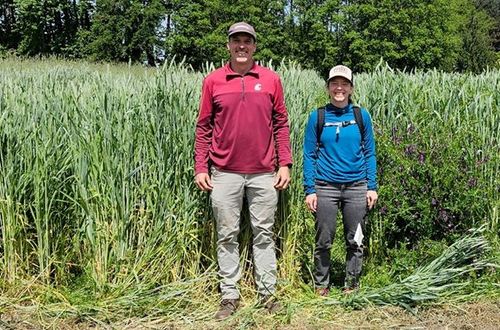Helping farmers, boosting biofuels: WSU-led paper shows promising cover crop benefits

Doug Collins and Teal Potter, co-authors on the new paper, stand in a field of triticale. The cover crop was grown to study its viability as a biofuel source. / Photo courtesy of Chad Kruger/WSU
November 25, 2025
BY Washington State University
Advertisement
Advertisement
Related Stories
A recent study offers new insight into the air quality and health benefits of switching household cooking fuels from charcoal to biofuel briquettes made from sawdust, according to the Biochar Editorial Office at Shenyang Agricultural University.
Comstock Inc. on Dec. 8 announced that one of its strategic investees, Bioleum Corp., acquired Hexas Biomass Inc., a global leader in the development and deployment of purpose grown energy crops and biomaterials
A new economic analysis finds that EPA’s proposal to assign 50% of the RIN credits to imported biofuels and biofuels made from imported feedstocks compared to domestic would strengthen domestic soybean markets.
The USDA maintained its outlook for 2025-’26 soybean oil use in biofuel production in its latest WASDE report, released Dec. 9. The estimate for 2024-’25 soybean oil use in biofuel production was revised down.
The USDA on Dec. 8 announced it will make $12 billion available in one time bridge payments to U.S. farmers in response to temporary trade market disruptions and increased production costs. The payments are expected to be released by Feb. 28, 2026.



